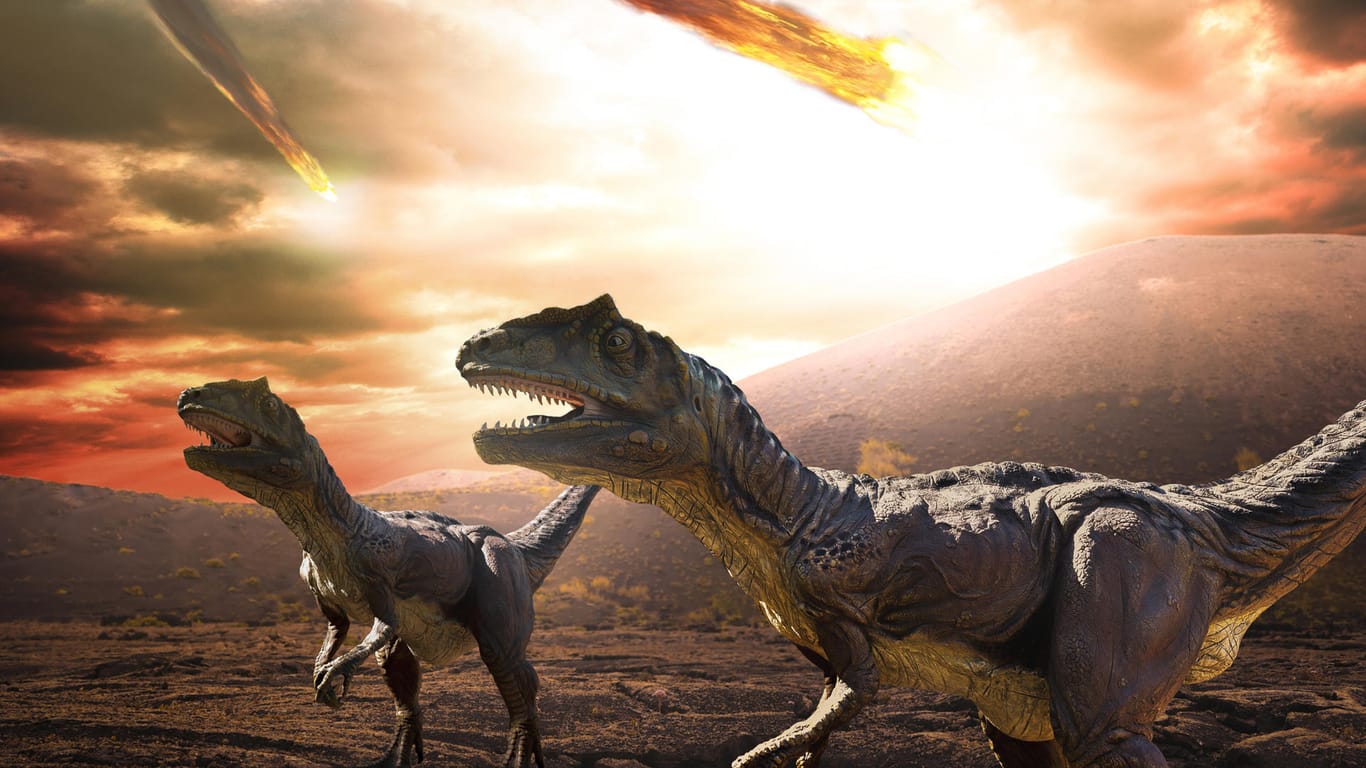 Asteroid impact 66 million years ago (symbolic image): The consequences were probably more devastating than previously assumed. (Source: serpeblu/getty-images-bilder)
Asteroid impact 66 million years ago (symbolic image): The consequences were probably more devastating than previously assumed. (Source: serpeblu/getty-images-bilder)
A new study shows that the consequences of the asteroid impact that killed dinosaurs 66 million years ago were more serious than expected.
What killed the dinosaurs millions of years ago? The scientific consensus is that an asteroid impact was responsible. Now it turns out that a dust cloud caused by this could possibly have contributed to the extinction of the giant lizards.
At least that’s what a new study suggests, published by a research team led by Cem Berk Senel from the Royal Observatory of Belgium in the scientific magazine “Nature”.
To do this, they examined rock layers in North Dakota in the USA , in which deposits of silicate dust were found. The fine dust probably settled there 66 million years ago – when the asteroid that was responsible for the death of the dinosaurs hit Earth.
Global winter probably longer than expected
Using special laser technology, the researchers were able to determine how much of this dust was once in the atmosphere. By entering additional data, the team used a simulation to determine what consequences the suspended particles in the air could have had on the Earth.
What is generally known: Not only was the impact of the asteroid itself fatal for the dinosaurs and other creatures, but also its consequences – such as tsunamis and forest fires. At the same time, there was also massive volcanic activity in western India, which, together with the effects of the asteroid impact, probably led to a global winter.
According to their studies, the silicate dust examined by the researchers was finer and arrived in greater quantities than before. The finer the dust in the atmosphere, the less sunlight reaches the earth. The simulation also showed that the dust was likely to be in the air for up to 15 years.
Earth may have cooled by 15 degrees
The consequences would then have been devastating. The study states that the temperature on Earth would have cooled by up to 15 degrees and would not have recovered until 20 years after the asteroid hit. Plants would not have been able to photosynthesize for almost two years – a death sentence for herbivores.As the herbivores became extinct, the carnivores gradually found themselves unable to find food, the research team concludes. Only creatures that hibernate or plants whose seeds can survive for a long time would have survived.
